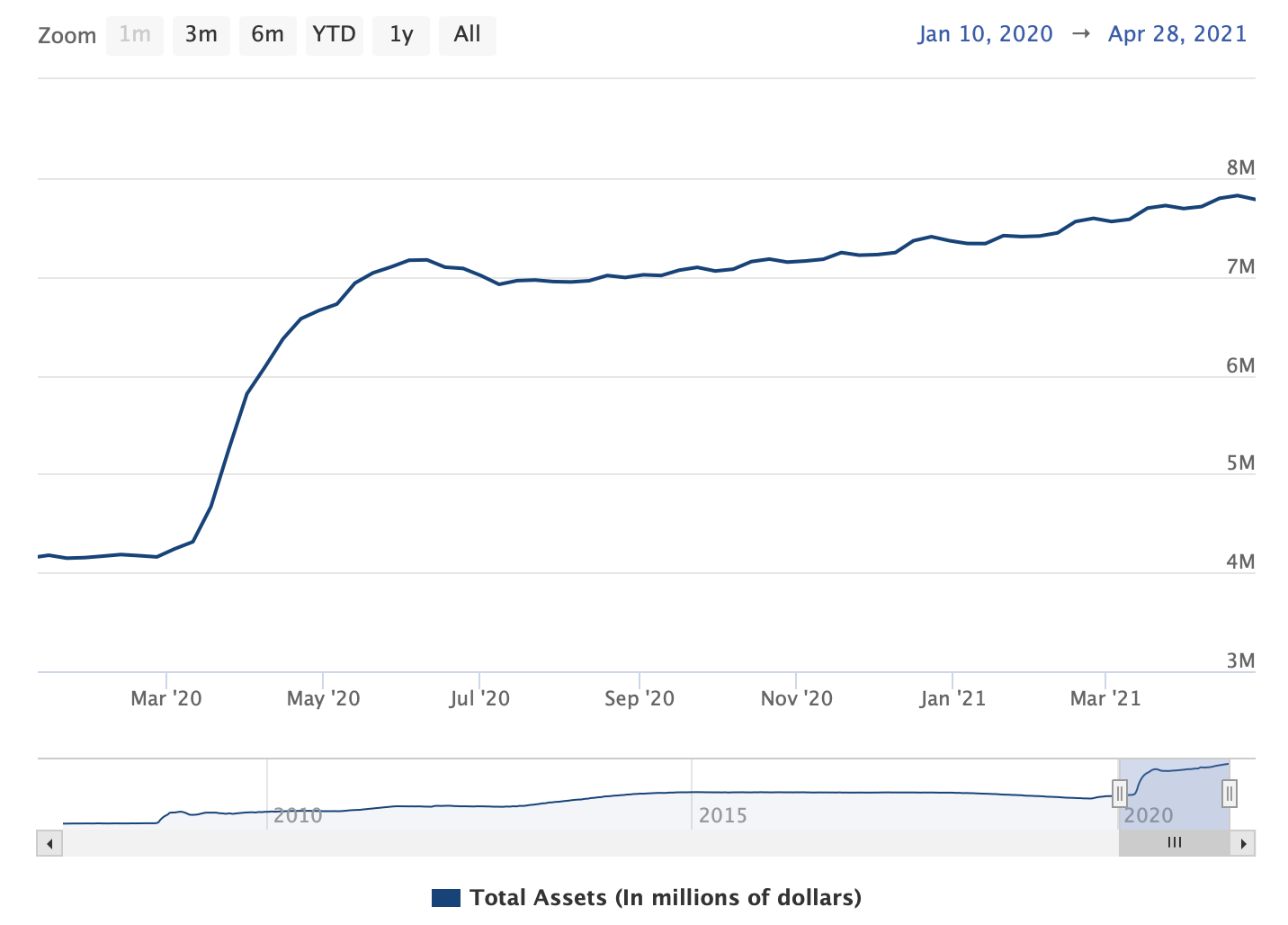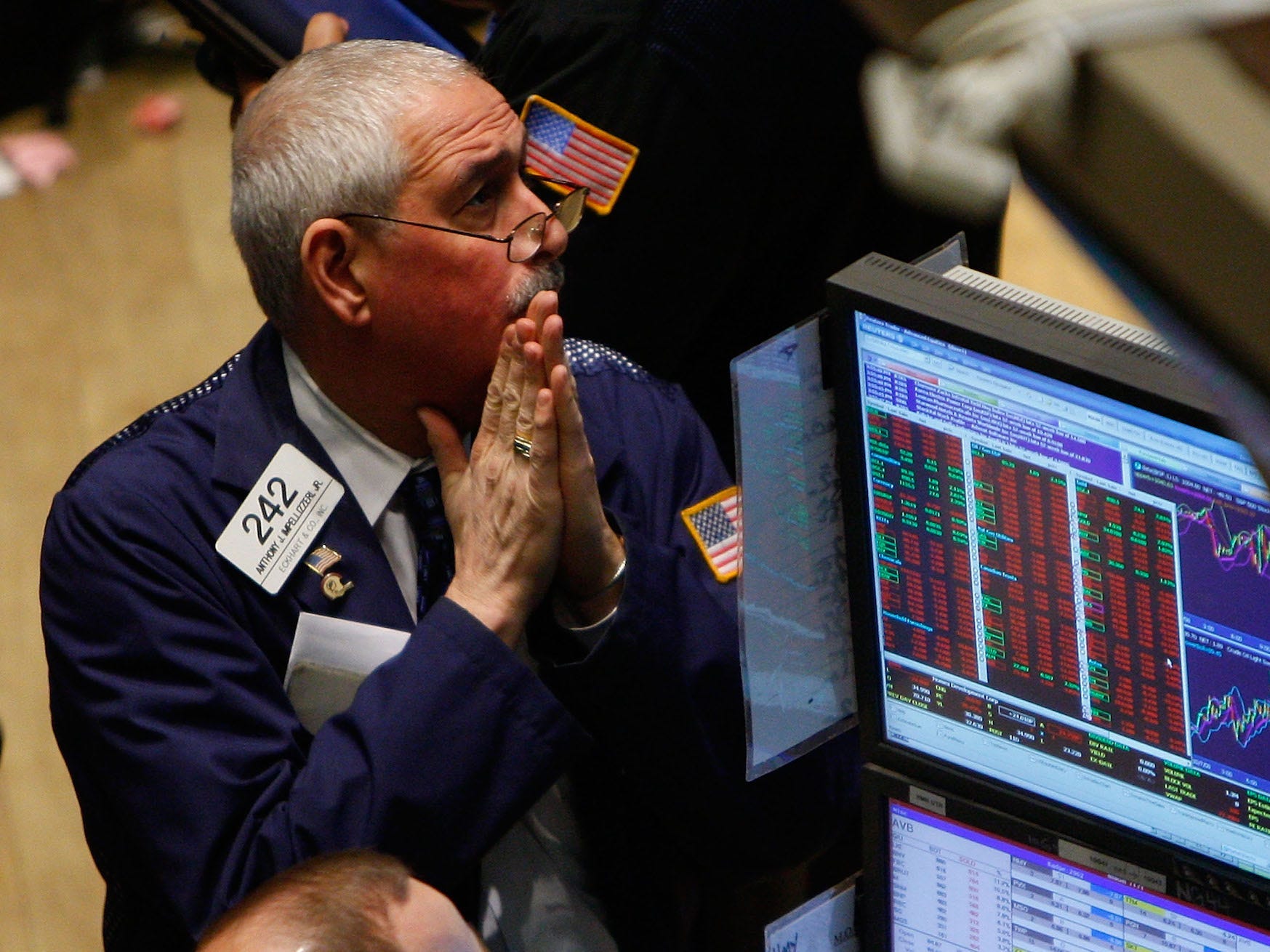- 48-year market veteran David Hunter says he sees a huge stock-market decline ahead.
- Hunter says the Federal Reserve is underestimating how much higher inflation will rise.
- He says they will therefore be forced to tighten policy, which will spook investors.
David Hunter believes underestimations abound in this market.
The Federal Reserve, whose chairman has said he will be patient amid what he expects to be a temporary surge in inflation this year, is underestimating just how hot the economy will get as it reopens.
“They want to talk about transitory inflation, but everything I see in my work says inflation’s going to get a lot hotter here in the next six months,” Hunter, the chief macro strategist at Contrarian Macro Advisors, told Palisades Gold Radio in an April interview.
Then there’s the investor, who is underestimating the Fed’s willingness to reduce their balance sheet in the case that inflation does get too high, Hunter said.
“I like to point out that last July we were barely a quarter or barely a few months removed from from the swoon, from a second-quarter disaster, and yet they felt comfortable enough pulling several hundred billion dollars off the balance sheet,” Hunter said, adding that the central bank could “easily” decide to take up to a trillion dollars out of the system.

Federal Reserve
And then there's the overall underestimation of how fragile the market is right now, and how dependent it is on Fed-fueled liquidity.
All of these miscalculations together, combined with a fragile economy as a result of the pandemic, will prove to be near-fatal for stocks later this year, Hunter argues.
Though he sees an extreme melt-up occurring in the months ahead amid bullish investor sentiment around the economic reopening - he believes the S&P 500 will rise to somewhere between 4,700-5,000, or about a 12-20% jump from current levels - Hunter then sees a monumental decline in stocks taking place, again thanks to Fed tightening from inflation.
He sees stocks topping sometime during the second quarter this year, before eventually falling 65-80% ahead of what he says will be a global economic bust. A 65% decline from 4,700 would put the S&P 500 around 1,650.
As for why he envisions the drop to be so dramatic, Hunter cited the heightened amount of leverage in the system in the form of debt and derivatives.
"Derivatives can really speed up things, and obviously markets are tied to the derivatives, so when things start unwinding it pushes the market," Hunter said. "We know leverage is one of the reasons we've seen this bubble blow up, and it's going to be just as much responsible for why the thing can deflate very quickly."
Hunter's views in context
Hunter, who started his investing career in 1973 as a portfolio manager, holds views that are on the more extreme end of the spectrum of how market participants see things playing out in the months ahead.
Even most other bears calling for a sizable crash ahead do not see stocks falling as much as 65%.
But the overall tone on Wall Street right now is a cautious one as investors behave speculatively. With valuations and investor sentiment extended, and indexes sitting near all-time highs because of recovery anticipation, many investment banks see little further upside - or even downside - for the S&P 500 this year, and are anticipating more volatility.
Hunter's premise that the Fed will be forced to tighten their policy this year could also be viewed as a longshot scenario. Jerome Powell, who is the central bank's chair, and other regional Fed presidents have repeatedly insisted that they will keep their hands off the tools of monetary policy this year if inflation surges, so as not to hurt the economic recovery and labor market progress.
This has eased the minds of equity investors, who fear a rise in interest rates would trigger a larger shift out of stocks.
Yet signs that Hunter's prediction could actually play out emerged this week when Treasury Secretary and former Federal Reserve Chair Janet Yellen said that the central bank may need to raise interest rates later this year if the economy gets too hot, though she then walked back the statement so it would not come off as a recommendation.
There's also the possiblility that Hunter is correct on inflation overshooting expectations. It did rise to a near-decade high of 3.5% in the first quarter, and supply shortages could continue to exacerbate this.
But even if there is no hike in interest rates or the Fed doesn't reduce its balance sheet this year, the fear among investors that the bank could potentially tighten perhaps touches on the degree of fragility that Hunter says exists in markets right now.
And with indicators like the S&P 500's average price-to-sales ratio and market cap-to-GDP both at historic highs, a pullback in stocks isn't an unreasonable expectation to have.
Still, a full economic reopening is coming. And if it's stronger than expected, it could lift stocks on their continued vertical push.
